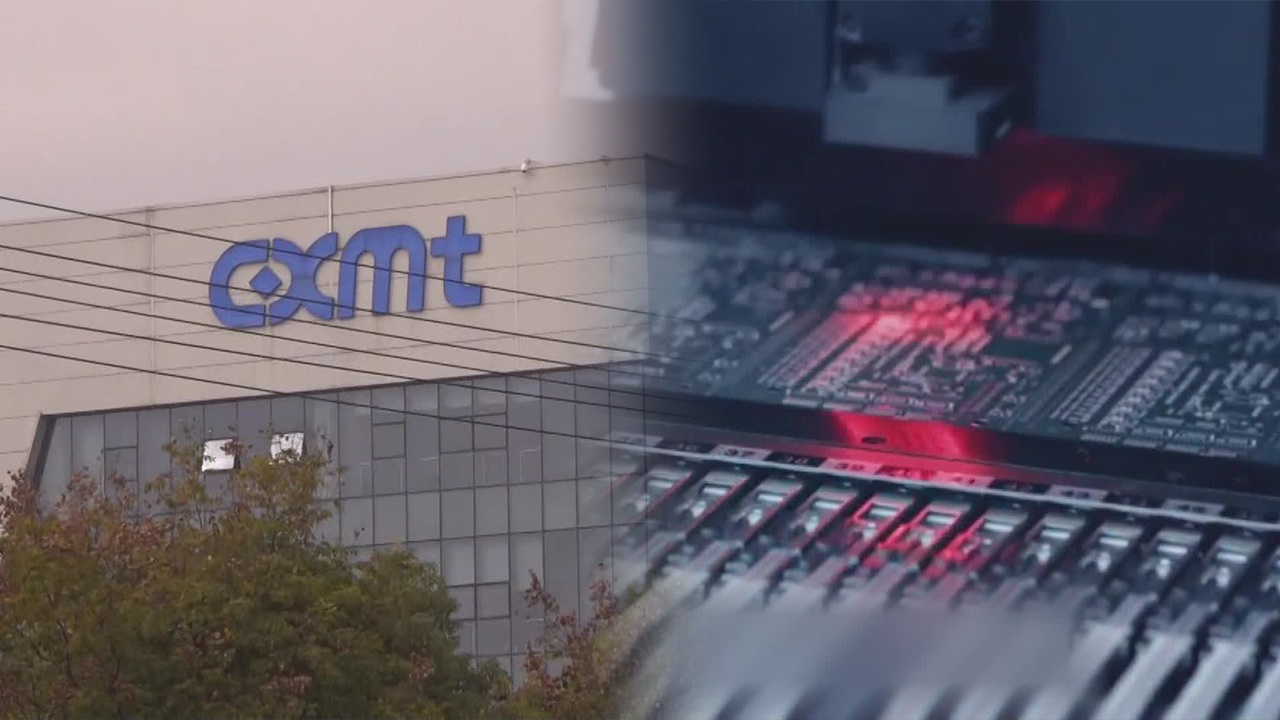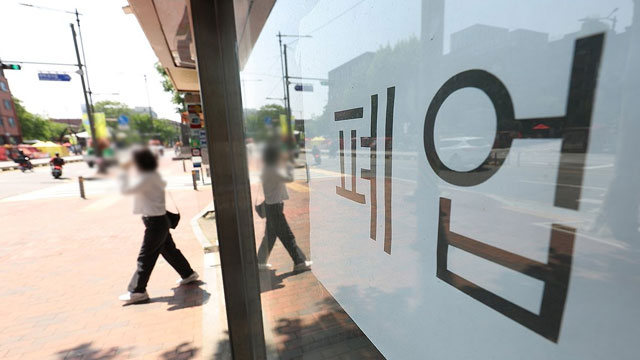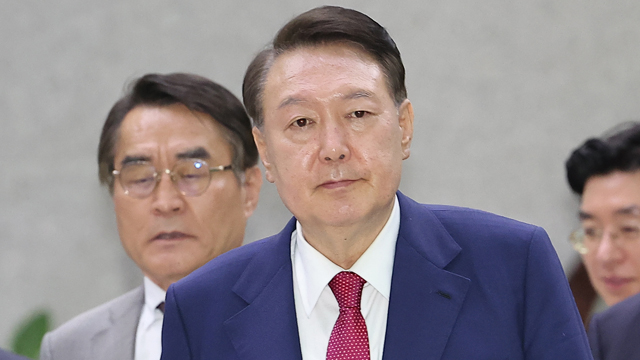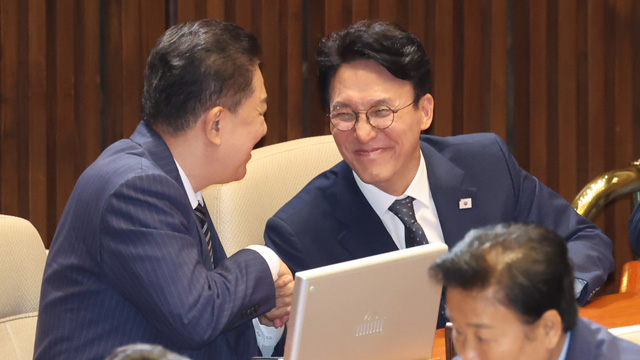China arrests Korean semiconductor expert amid rising espionage concerns
입력 2024.10.30 (22:30)
읽어주기 기능은 크롬기반의
브라우저에서만 사용하실 수 있습니다.
[Anchor]
We reported earlier that a Korean resident was arrested in China on charges of violating the anti-espionage law.
Let's take a closer look.
The arrested Korean resident was a semiconductor equipment expert who had previously worked at Samsung Electronics.
He was promised good treatment when he went to China, but the reality was not easy.
Kim Hyo-shin has the report.
[Report]
China's leading DRAM semiconductor company, ChangXin Memory Technologies.
It opened in 2016 when the Chinese government began to focus on nurturing the semiconductor industry.
With high salaries and support for housing and children's education, semiconductor experts from various countries flocked to the company.
The Korean resident, referred to as A, who was arrested for violating the anti-espionage law, joined ChangXin after taking early retirement from Samsung Electronics.
[A's family/voice altered: "I think my father had a hard time finding a stable job for the family at that time."]
At that time, about 450 foreign workers, including Taiwanese semiconductor experts from TSMC, and over 40 Korean experts from Samsung Electronics were reportedly recruited.
Most signed five-year labor contracts, but it is said that the promises were not kept.
[Former ChangXin Memory technician/voice altered: "When the development progressed to a certain extent and the Chinese employees learned, they began to let go of the Korean engineers who were no longer useful."]
A also had to leave ChangXin Memory after three and a half years and subsequently worked at two other Chinese semiconductor companies.
A former colleague of A stated, "A faced difficulties and explained the current state of the Chinese semiconductor industry to a consulting firm," adding, "I am concerned that this may have caused the trouble," to KBS.
There are also analyses suggesting that as the U.S., Japan, and South Korea strengthened penalties for the leakage of semiconductor information to China, China began to respond in kind.
Since the economic war between the U.S. and China, China's self-sufficiency rate in the semiconductor industry has steadily increased to 23%.
China has confidently declared that it aims to raise its semiconductor self-sufficiency rate to 70%.
As a result, predictions are emerging that penalties for espionage in the semiconductor field will be further strengthened.
This is Kim Hyo-shin from KBS News in Beijing.
We reported earlier that a Korean resident was arrested in China on charges of violating the anti-espionage law.
Let's take a closer look.
The arrested Korean resident was a semiconductor equipment expert who had previously worked at Samsung Electronics.
He was promised good treatment when he went to China, but the reality was not easy.
Kim Hyo-shin has the report.
[Report]
China's leading DRAM semiconductor company, ChangXin Memory Technologies.
It opened in 2016 when the Chinese government began to focus on nurturing the semiconductor industry.
With high salaries and support for housing and children's education, semiconductor experts from various countries flocked to the company.
The Korean resident, referred to as A, who was arrested for violating the anti-espionage law, joined ChangXin after taking early retirement from Samsung Electronics.
[A's family/voice altered: "I think my father had a hard time finding a stable job for the family at that time."]
At that time, about 450 foreign workers, including Taiwanese semiconductor experts from TSMC, and over 40 Korean experts from Samsung Electronics were reportedly recruited.
Most signed five-year labor contracts, but it is said that the promises were not kept.
[Former ChangXin Memory technician/voice altered: "When the development progressed to a certain extent and the Chinese employees learned, they began to let go of the Korean engineers who were no longer useful."]
A also had to leave ChangXin Memory after three and a half years and subsequently worked at two other Chinese semiconductor companies.
A former colleague of A stated, "A faced difficulties and explained the current state of the Chinese semiconductor industry to a consulting firm," adding, "I am concerned that this may have caused the trouble," to KBS.
There are also analyses suggesting that as the U.S., Japan, and South Korea strengthened penalties for the leakage of semiconductor information to China, China began to respond in kind.
Since the economic war between the U.S. and China, China's self-sufficiency rate in the semiconductor industry has steadily increased to 23%.
China has confidently declared that it aims to raise its semiconductor self-sufficiency rate to 70%.
As a result, predictions are emerging that penalties for espionage in the semiconductor field will be further strengthened.
This is Kim Hyo-shin from KBS News in Beijing.
■ 제보하기
▷ 카카오톡 : 'KBS제보' 검색, 채널 추가
▷ 전화 : 02-781-1234, 4444
▷ 이메일 : kbs1234@kbs.co.kr
▷ 유튜브, 네이버, 카카오에서도 KBS뉴스를 구독해주세요!
- China arrests Korean semiconductor expert amid rising espionage concerns
-
- 입력 2024-10-30 22:30:37

[Anchor]
We reported earlier that a Korean resident was arrested in China on charges of violating the anti-espionage law.
Let's take a closer look.
The arrested Korean resident was a semiconductor equipment expert who had previously worked at Samsung Electronics.
He was promised good treatment when he went to China, but the reality was not easy.
Kim Hyo-shin has the report.
[Report]
China's leading DRAM semiconductor company, ChangXin Memory Technologies.
It opened in 2016 when the Chinese government began to focus on nurturing the semiconductor industry.
With high salaries and support for housing and children's education, semiconductor experts from various countries flocked to the company.
The Korean resident, referred to as A, who was arrested for violating the anti-espionage law, joined ChangXin after taking early retirement from Samsung Electronics.
[A's family/voice altered: "I think my father had a hard time finding a stable job for the family at that time."]
At that time, about 450 foreign workers, including Taiwanese semiconductor experts from TSMC, and over 40 Korean experts from Samsung Electronics were reportedly recruited.
Most signed five-year labor contracts, but it is said that the promises were not kept.
[Former ChangXin Memory technician/voice altered: "When the development progressed to a certain extent and the Chinese employees learned, they began to let go of the Korean engineers who were no longer useful."]
A also had to leave ChangXin Memory after three and a half years and subsequently worked at two other Chinese semiconductor companies.
A former colleague of A stated, "A faced difficulties and explained the current state of the Chinese semiconductor industry to a consulting firm," adding, "I am concerned that this may have caused the trouble," to KBS.
There are also analyses suggesting that as the U.S., Japan, and South Korea strengthened penalties for the leakage of semiconductor information to China, China began to respond in kind.
Since the economic war between the U.S. and China, China's self-sufficiency rate in the semiconductor industry has steadily increased to 23%.
China has confidently declared that it aims to raise its semiconductor self-sufficiency rate to 70%.
As a result, predictions are emerging that penalties for espionage in the semiconductor field will be further strengthened.
This is Kim Hyo-shin from KBS News in Beijing.
We reported earlier that a Korean resident was arrested in China on charges of violating the anti-espionage law.
Let's take a closer look.
The arrested Korean resident was a semiconductor equipment expert who had previously worked at Samsung Electronics.
He was promised good treatment when he went to China, but the reality was not easy.
Kim Hyo-shin has the report.
[Report]
China's leading DRAM semiconductor company, ChangXin Memory Technologies.
It opened in 2016 when the Chinese government began to focus on nurturing the semiconductor industry.
With high salaries and support for housing and children's education, semiconductor experts from various countries flocked to the company.
The Korean resident, referred to as A, who was arrested for violating the anti-espionage law, joined ChangXin after taking early retirement from Samsung Electronics.
[A's family/voice altered: "I think my father had a hard time finding a stable job for the family at that time."]
At that time, about 450 foreign workers, including Taiwanese semiconductor experts from TSMC, and over 40 Korean experts from Samsung Electronics were reportedly recruited.
Most signed five-year labor contracts, but it is said that the promises were not kept.
[Former ChangXin Memory technician/voice altered: "When the development progressed to a certain extent and the Chinese employees learned, they began to let go of the Korean engineers who were no longer useful."]
A also had to leave ChangXin Memory after three and a half years and subsequently worked at two other Chinese semiconductor companies.
A former colleague of A stated, "A faced difficulties and explained the current state of the Chinese semiconductor industry to a consulting firm," adding, "I am concerned that this may have caused the trouble," to KBS.
There are also analyses suggesting that as the U.S., Japan, and South Korea strengthened penalties for the leakage of semiconductor information to China, China began to respond in kind.
Since the economic war between the U.S. and China, China's self-sufficiency rate in the semiconductor industry has steadily increased to 23%.
China has confidently declared that it aims to raise its semiconductor self-sufficiency rate to 70%.
As a result, predictions are emerging that penalties for espionage in the semiconductor field will be further strengthened.
This is Kim Hyo-shin from KBS News in Beijing.
-
-

김효신 기자 shiny33@kbs.co.kr
김효신 기자의 기사 모음
-
이 기사가 좋으셨다면
-
좋아요
0
-
응원해요
0
-
후속 원해요
0















이 기사에 대한 의견을 남겨주세요.